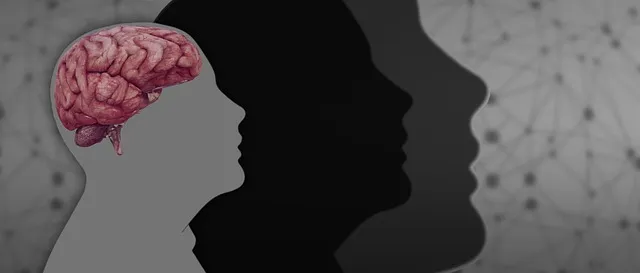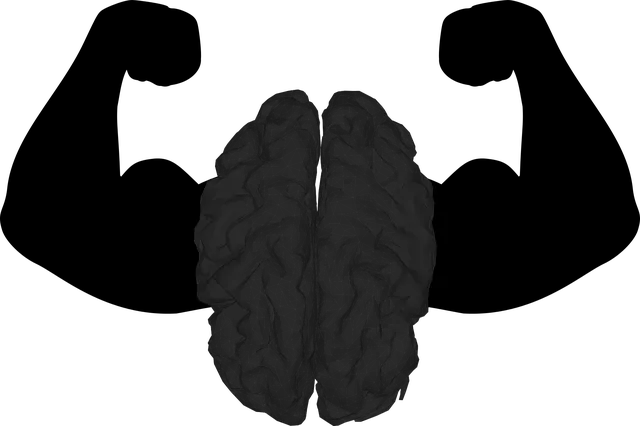Kaiser Permanente Wheat Ridge, a leading mental health facility, employs advanced analytics to drive personalized care. They analyze demographics, social determinants of health, and self-care practices like journaling to tailor interventions. Their Self-Care Routine Development program encourages patient participation, offering valuable data for refining services. This holistic approach integrates structured interviews, surveys, EHR systems, and evidence-based practices to enhance data accuracy and understanding of patients' mental health journeys. By analyzing trends, they personalize treatments and improve outcomes, setting a benchmark through compassionate practices and cultural competency training, while addressing privacy, ethics, and diverse cultural backgrounds with AI and awareness initiatives.
“Mental health data analysis is a powerful tool for understanding patient needs at Kaiser Permanente’s Wheat Ridge facility. This article explores how comprehensive data collection and innovative analysis methods are transforming mental healthcare. We delve into the process of interpreting complex data to enhance patient outcomes, focusing on strategies employed by Kaiser Permanente Wheat Ridge. Additionally, we discuss challenges and future prospects in mental health data analysis, highlighting its potential to revolutionize care.”
- Understanding Mental Health Data at Kaiser Permanente Wheat Ridge
- Data Collection and Analysis Methods in Mental Health Facilities
- Interpreting Data to Improve Patient Care and Outcomes
- Challenges and Future Directions for Mental Health Data Analysis
Understanding Mental Health Data at Kaiser Permanente Wheat Ridge

At Kaiser Permanente Wheat Ridge, understanding mental health data is a cornerstone of delivering comprehensive care to its diverse patient population. This leading mental health facility leverages advanced analytics to gain valuable insights into individual and community well-being, with a focus on identifying trends and patterns that contribute to both mental illness and resilience. By examining a wide array of factors—from demographic information to social determinants of health, and self-care practices like journaling—the team at Kaiser Permanente Wheat Ridge can tailor interventions to address specific needs.
The integration of Self-Care Routine Development for Better Mental Health is a key strategy in their approach. Encouraging patients to engage in mental wellness activities, such as journaling exercises detailed in their Mental Wellness Journaling Exercise Guidance, not only empowers individuals to take an active role in their care but also provides valuable data points for ongoing analysis. This holistic view enables the facility to continuously refine its programs and services, ensuring that they remain relevant and effective in promoting mental health across all demographics.
Data Collection and Analysis Methods in Mental Health Facilities

Mental health facilities, such as the Kaiser Permanente mental health facility in Wheat Ridge, employ diverse data collection and analysis methods to improve patient care and outcomes. These methods encompass structured interviews, surveys, medical records reviews, and observational assessments, tailored to capture nuanced aspects of mental health experiences. By leveraging electronic health record (EHR) systems, healthcare providers can efficiently organize and analyze vast amounts of data, enabling them to identify trends, patterns, and correlations that may not be apparent through traditional means.
Incorporating evidence-based practices like Compassion Cultivation Practices, Healthcare Provider Cultural Competency Training, and Trauma Support Services further enhances data analysis within these facilities. These approaches not only improve the accuracy of collected data but also foster a more holistic understanding of patients’ mental health journeys. Such comprehensive analysis empowers mental health professionals to make informed decisions, tailor interventions, and ultimately provide more personalized and effective care to each individual.
Interpreting Data to Improve Patient Care and Outcomes

At Kaiser Permanente mental health facility in Wheat Ridge, data interpretation plays a pivotal role in enhancing patient care and outcomes. By meticulously analyzing trends within the collected data, healthcare professionals can gain valuable insights into the effectiveness of various therapeutic approaches. This enables them to tailor treatments more precisely to individual needs, ensuring that each patient receives personalized support. For instance, understanding which Self-Care Practices or Social Skills Training modules resonate best with different demographics can lead to improved treatment protocols.
Moreover, incorporating Compassion Cultivation Practices into the analysis can provide a deeper understanding of patients’ emotional well-being. This holistic approach allows mental health facilities to not only address symptoms but also foster a sense of compassion and empathy within their patient population. Such comprehensive data-driven insights contribute significantly to improving overall mental health outcomes at Kaiser Permanente Wheat Ridge, setting a benchmark for other healthcare institutions seeking to optimize their services.
Challenges and Future Directions for Mental Health Data Analysis

The analysis and interpretation of mental health data face several challenges, especially as institutions like Kaiser Permanente’s Wheat Ridge facility grapple with vast amounts of diverse information. One significant hurdle is ensuring data privacy and ethical use while maintaining accessibility for meaningful insights. With sensitive natured information, protecting patient identities and adhering to stringent regulatory frameworks are paramount.
Looking ahead, the future of mental health data analysis lies in integrating advanced technologies like artificial intelligence and machine learning. These tools can help identify patterns and trends in large datasets, enabling more personalized treatment approaches. Moreover, enhancing healthcare provider cultural competency training and promoting Mental Health Awareness can lead to better data interpretation by ensuring accurate assessments that account for diverse cultural backgrounds and experiences.
Mental health data analysis is a powerful tool that, when applied effectively at facilities like Kaiser Permanente Wheat Ridge, can significantly enhance patient care and outcomes. By understanding unique challenges within these settings, implementing robust data collection methods, and interpreting findings with precision, mental health professionals can navigate the complexities of this field. The future of mental health data analysis holds immense potential for personalized treatment plans, improved resource allocation, and ultimately, better lives for those seeking support at Kaiser Permanente Wheat Ridge and beyond.






